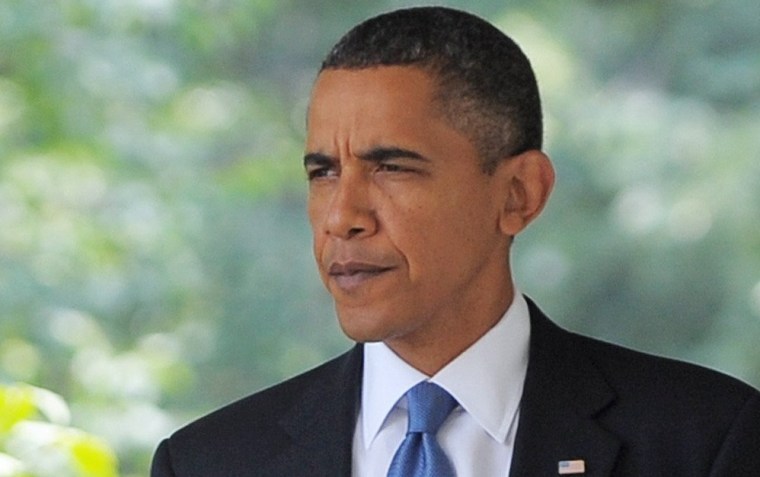While means of plugging the oil gusher in the Gulf of Mexico remain murky, one thing is clear: Barack Obama has taken about as forceful a stand against BP as any president reasonably could. He may have been slow to visit the Gulf coast, and his administration may have low-balled its estimates of the leakage. But from the outset, Obama has made clear, with uncharacteristically populist anger, that BP is at fault - and in addition to the cleanup, will pay out claims to the tune of $20 billion.
This frontal assault on a major corporation is what drove Joe Barton, the top Republican on the Energy and Commerce Committee, to complain last week about a "shakedown'' and issue his infamous apology to BP.
Barton might as easily have blamed Goldman Sachs, the forgotten villain. Or AIG. Or Citigroup. Or any of the big firms that brought on the financial crisis and then benefited from the government's largesse. At every stage, Obama has handled the politics of the Gulf crisis in almost point-by-point contrast to his treatment of Wall Street in the first year of his administration.
Obama took office in the face of a crisis that, like the current one, was almost unprecedented in scope and showed no signs of abating. The economy had been shrinking at an annual rate of 6.4 percent. Historically, governments halt financial crises through massive bailouts; George W. Bush had already signed the $700 billion Troubled Asset Relief Program. Obama's plan largely avoided that, cleverly relying on private investors, rather than taxpayers, to recapitalize ailing banks and return the economy to growth.
But luring investors meant handling Wall Street gently so as not to set off a panic. Obama made a few dutiful comments about "fat cat'' bankers, but spent far more energy protecting than attacking them. "My administration is the only thing standing between you and the pitchforks,'' he warned CEOs.
As a matter of policy, Obama has been mostly vindicated. On Tuesday, Treasury Secretary Timothy Geithner said that taxpayers would realize a $24 billion profit on TARP money lent to banks (though overall TARP still projects a net loss of $105 billion). But as a political matter, Obama's approach was disastrous. Despite limiting the cost to taxpayers, most Americans view him as having unjustly bailed out Wall Street and run up huge deficits. This will cost Democrats dearly in November.
The lesson appears to have registered. Where BP is concerned, Obama is the one wielding a pitchfork. He has done two things differently. He has directly blamed the company for the disaster in stark language that he avoided using toward banks. "It's an assault on our shores, on our people, on the regional economy, and on communities like this one,'' he said while visiting Louisiana in May. He has also taken pains to emphasize that taxpayers won't bail out BP, first bullying the company into waiving a $75 million statutory cap on liability and then into pledging $20 billion to cover claims, neither of which he had direct authority to do.
And yet, Obama has done this to mostly negative reviews. The conventional view in Washington is that he hideously misplayed his hand, thereby saddling himself with "his own Katrina,'' in the pundits' formulation. His Oval Office address explaining the government's response was widely panned.
But ordinary voters have given him a more favorable reception. The public overwhelmingly blames BP for the spill. More than three-quarters of respondents to the latest Gallup poll disapproved of the company's performance; and while they split about evenly on the president's handling, this was an improvement in the wake of his address.
Perhaps the clearest indicator that Obama isn't about to put down the pitchfork is how well he has weathered the last two months. His approval rating dropped steadily across his first year as the financial crisis dominated headlines. It's held firm since the oil rig exploded in April. Given the bold policy he undertook to save the financial system, that is hardly just. But Obama would be the last to point out that he's faring much better in the crisis for which he has no solution than in the one for which he had a pretty good one.
